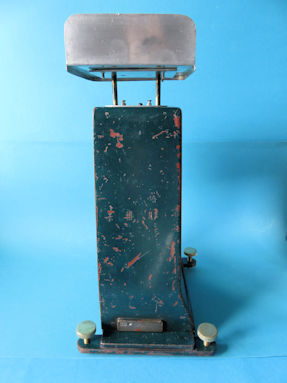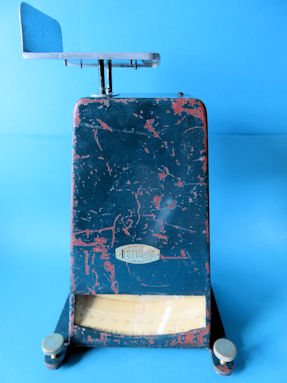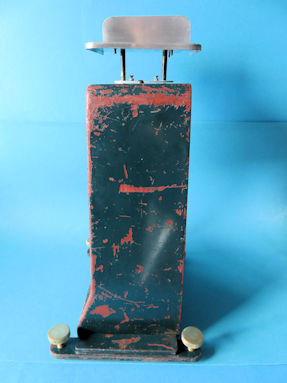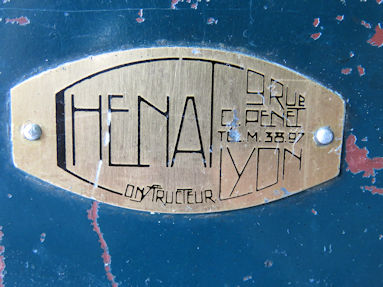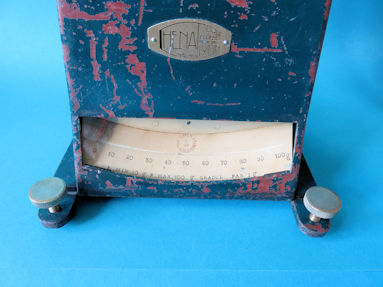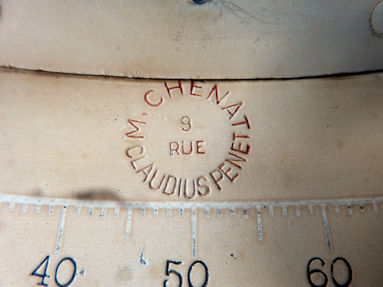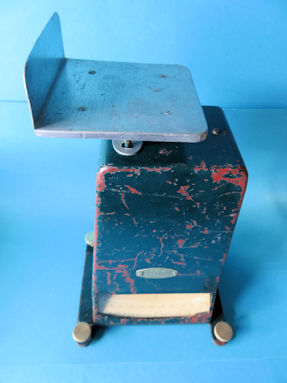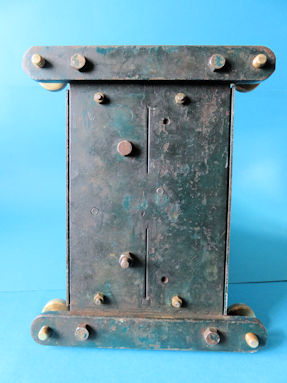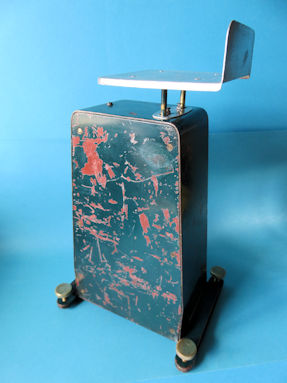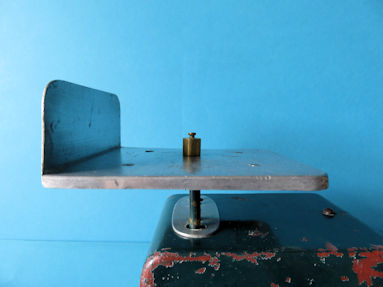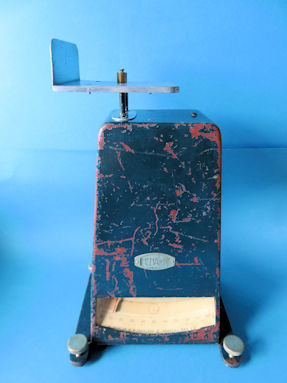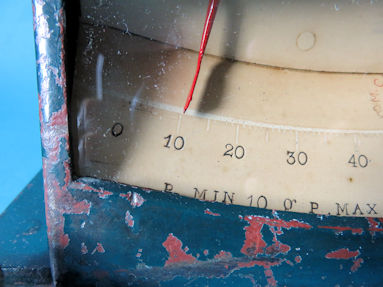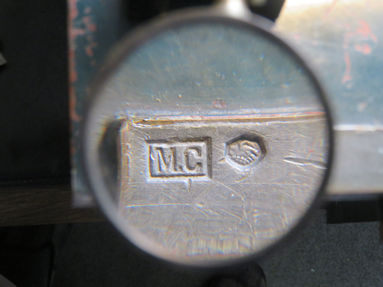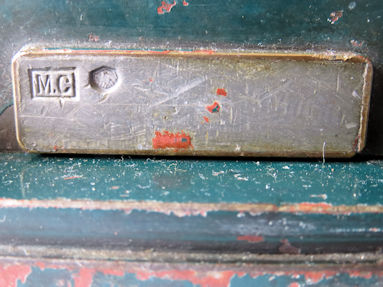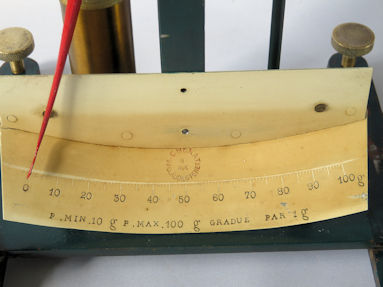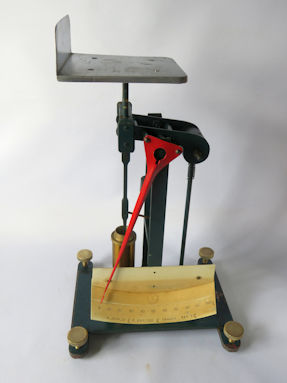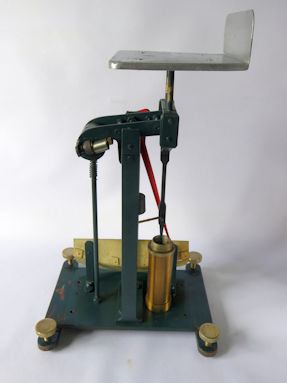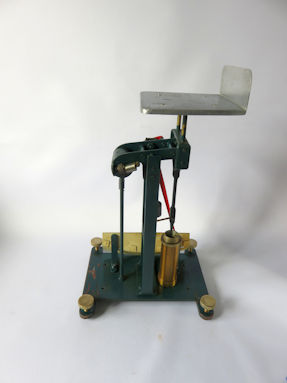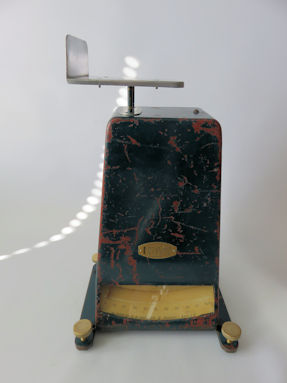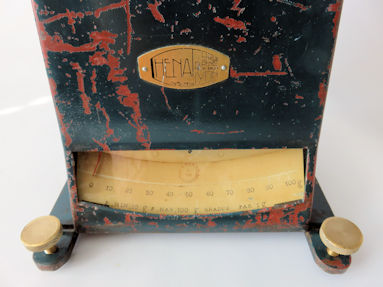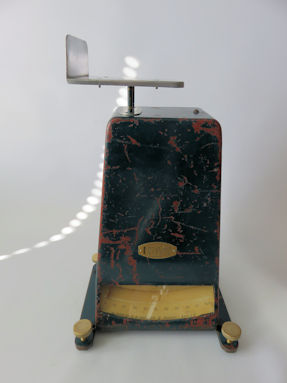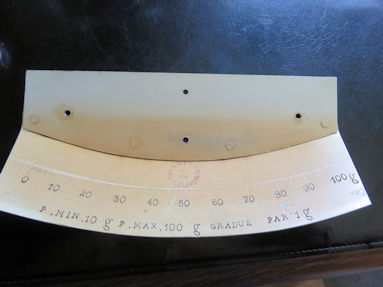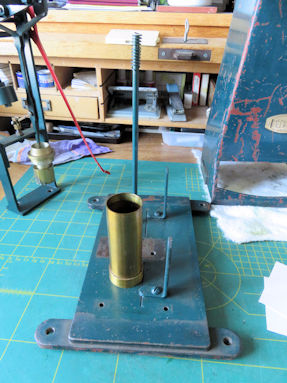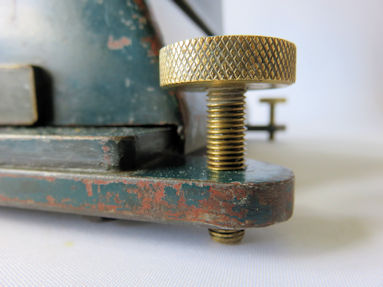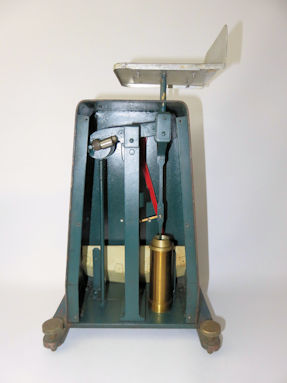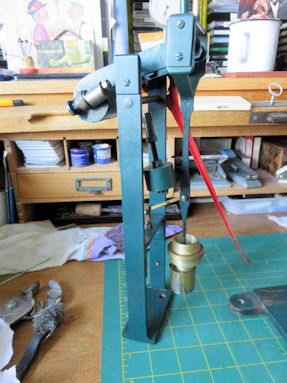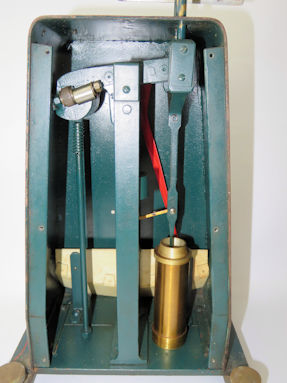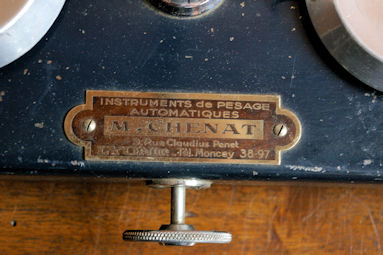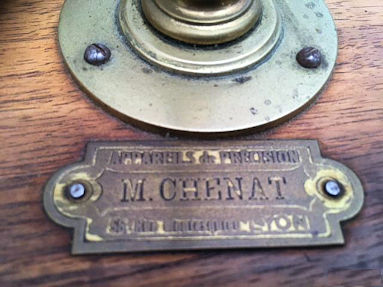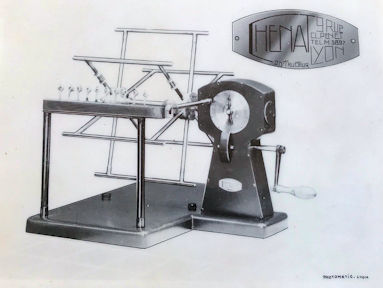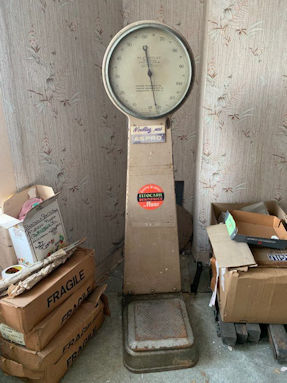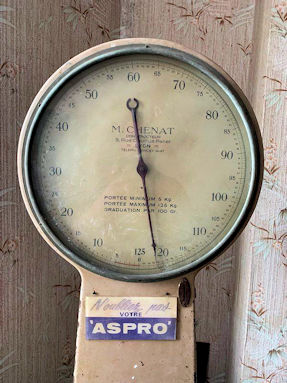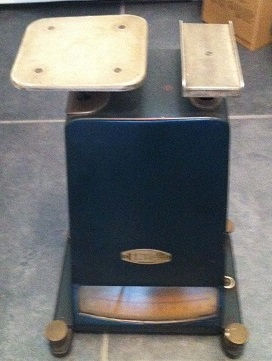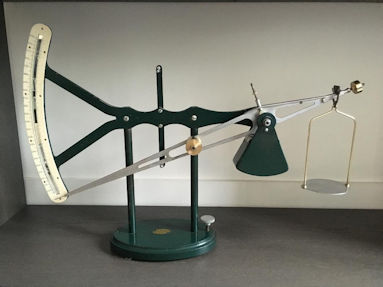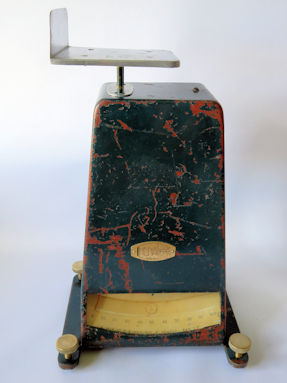
scale for letters? - maker M. Chenat
This unusual, unique, and rare scale was made in France by the Lyon-based designer Marius Chenat. The 100-gram scale has a line of measurement for each gram. The scale states that the minimum weight to be weighed is 10 grams and the maximum is 100 grams. The scale has four adjusting screws but lacks a spirit level. The heavy scale housing conceals a pendulum mechanism with knife-edge bearings. The mechanism has multiple adjustment options. The scale is equipped with an oil damper to stop the movement more quickly and enable readings. Various components are numbered 12. At the bottom left of the scales' housing is a large lead surface. It contains the French hallmark with the handshake, this relief stamp has four straight sides and an arch underneath. I don't know when this stamp shape dates. It also has M.C. in a rectangle. I don't know if this represents Marius Chenat's initials or something else. The platform with the raised edge is suitable for weighing letters, but I don't know what this unusual scale was designed for. Searching the internet for the name M. Chenat yielded several other scale models. The second to last photo at the bottom of this page shows a scale with a similar scale housing and also four adjusting screws. There is a spirit level on the right side. This scale, with its two platforms, appears to be a balance. There are various nameplate designs on the precision balances supplied by M. Chenat. I also came across a large personal scale with the name M. Chenat on the dial; see the photos below. The last photo shows a precision scale made by M. Chenat with an oil damper, which was supposedly intended for determining the moisture content of tobacco. I found one patent FR578467 from Marius Chenat, granted on July 3, 1924. It concerns a scale mechanism with ball bearings and gears and has no similarities with the scale shown here.
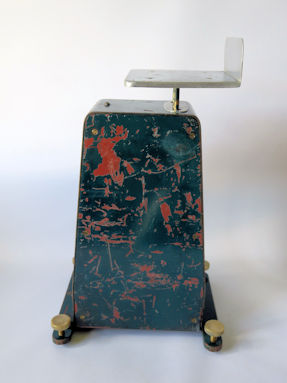
back of the scale
